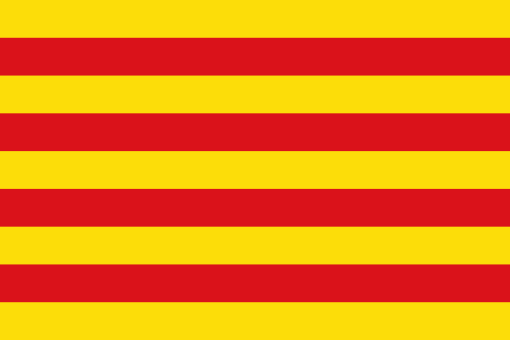Internationalization (i18n)
FormKit ships with internationalization support for all of its interfaces and validation messages.
Available languages
Currently, FormKit supports the following languages (in the @formkit/i18n package):
- 🇱🇾 Arabic (ar) — @Ahmedelforjani
- 🇦🇿 Azerbaijani (az) — @EmrullahKutlar
- 🇧🇩 Bengali (bn)
- 🇧🇦 Bosnian (bs) — @TarikTz
- 🇧🇬 Bulgarian (bg) — @ivanov1234159
 Catalan (ca) — @petergithubmgw
Catalan (ca) — @petergithubmgw- 🇨🇳 Chinese (zh) — @myleslee
- 🇨🇳 Chinese Traditional (zh-TW) — @actocoa
- 🇭🇷 Croatian (hr) — @antemarkic
- 🇨🇿 Czech (cs) — @dfridrich
- 🇩🇰 Danish (da) — @bjerggaard
- 🇳🇱 Dutch (nl) — @arjendejong12
- 🇺🇸 English (en)
- 🇫🇮 Finish (fi) — @mihqusta
- 🇫🇷 French (fr) — @HoreKk, @pop123123123
Frisian (fy) — @arjendejong12
- 🇩🇪 German (de) — @digitalkaoz, @tosling
- 🇬🇷 Greek (el) — @mendrinos
- 🇮🇱 Hebrew (he) — @Hepi420
- 🇭🇺 Hungarian (hu) — @KristofKekesi
- 🇮🇸 Icelandic (is) — @Gunsobal
- 🇮🇩 Indonesian (id) — @rama-adi
- 🇮🇹 Italian (it) — @punga78, @Archetipo95
- 🇯🇵 Japanese (ja) — @wonyx
- 🇰🇿 Kazakh (kk) — @ilya-raevskiy
- 🇰🇷 Korean (ko) — @bwp618, @titusdecali
- 🇱🇻 Latvian (lv) — @Bamslation
- 🇱🇹 Lithuanian (lt) — @balu-lt
- 🇲🇳 Mongolian (mn) — @zemunkh
- 🇳🇴 Norwegian Bokmål (nb) — @hognevevle
- 🇮🇷 Persian (fa) — @shahabbasian
- 🇵🇱 Polish (pl) — @xxSkyy
- 🇧🇷 Portuguese (pt) @r-martins, @dbomfim
- 🇷🇴 Romanian (ro) — @danve
- 🇷🇺 Russian (ru) — @andreimakushkin
- 🇸🇰 Slovak (sk) — @neridev
- 🇸🇮 Slovenian (sl) — @krisflajs
- 🇷🇸 Serbian (sr) — @milos5593
- 🇦🇷 Spanish (es) — @inibg
- 🇸🇪 Swedish (sv) — @purung
- 🇹🇯 Tajik (tg) — @devixrootix
- 🇹🇱 Tetum (tet) — @joshbrooks
- 🇹🇭 Thai (th) — @pknn
- 🇺🇦 Ukrainian (uk) — @aresofficial
- 🇺🇿 Uzbek (uz) — @root5427
- 🇹🇷 Turkish (tr) — @ragokan, @cemkaan
- 🇻🇳 Vietnamese (vi) — @oanhnn
Although flags are poor representations of languages (flags indicate a geographic nation, while languages can be spoken in many ares of the world), we use the flags in the list above to indicate the location of the contributor who created that particular locale.
Using a locale
FormKit’s defaultConfig includes the english locale by default — to add an additional locale, import it from @formkit/i18n and append it to the locales option when you initialized the FormKit plugin. To set the active locale specify it with the locale option:
import { createApp } from 'vue'
import App from 'App.vue'
import { plugin, defaultConfig } from '@formkit/vue'
import { de, fr, zh } from '@formkit/i18n'
const app = createApp(App)
app.use(
plugin,
defaultConfig({
// Define additional locales
locales: { de, fr, zh },
// Define the active locale
locale: 'fr',
})
)
app.mount('#app')
Changing the active locale
There are three ways to change your active locale:
- Using
changeLocaleto globally change the locale. - Using
this.$formkit.setLocale()from the Vue plugin (best for options API). - Rarely used, but useful for directly modifying the root
configobject.
Using changeLocale
You can change the locale of all FormKit inputs by using the changeLocale composable. This is the preferred method when a global change is needed:
<script setup>import { changeLocale } from '@formkit/vue'</script><template> <button class="border-2 px-2 py-1 mb-4" @click="changeLocale('zh')"> Set to Chinese </button> <FormKit type="text" validation="required|length:10" name="username" validation-visibility="live" /></template>Using root config
When using the composition API, you won’t have access to this.$formkit. Instead, you can fetch and modify the root FormKit configuration object. This is made available globally via Vue’s inject mechanism and a unique Symbol:
<script setup>import { ref, inject } from 'vue'const current = ref('en')const config = inject(Symbol.for('FormKitConfig'))const changeLocale = () => { current.value = current.value === 'en' ? 'de' : 'en' config.locale = current.value}</script><template> <a @click.prevent="changeLocale" href="#"> <span v-if="current === 'en'">🇩🇪 config.locale = 'de'</span> <span v-if="current === 'de'">🇺🇸 config.locale = 'en'</span> </a> <FormKit type="form" @submit="() => false"> <FormKit type="email" label="Email" placeholder="[email protected]" validation="required|email" /> </FormKit> <small> Note: this example does not contain a full german locale, only the messages required for this example (submit, required, email). </small></template>Overriding
If you find a phrase in your locale isn’t worded the way you prefer, you can override those individual messages globally in your configuration. You can do this by providing a messages object to the defaultConfig:
import { createApp } from 'vue'
import { plugin, defaultConfig } from '@formkit/vue'
import App from 'App.vue'
const app = createApp(App)
app.use(
plugin,
defaultConfig({
messages: {
en: {
ui: {
submit: '🚀 Launch',
},
},
},
})
)
Messages are generally found under a locale’s ui or validation property. To see a full list of keys and messages checkout the english locale.
Adding your language
Writing a locale for a language you know is a great way to contribute to FormKit and an easy way to get started with open source too! We are always eager to see pull requests for new locales. To support this effort, we’ve created a locale builder — a small web app to make the translation process as easy as possible.
Of course, you are not required to use our locale builder to submit a language, and are more than welcome to submit a standard pull request with your locale included.
If your language is already on the list (let's say English), but your locality speaks a variation of that language (like 🇬🇧 en-GB), please feel free to submit your localized language.